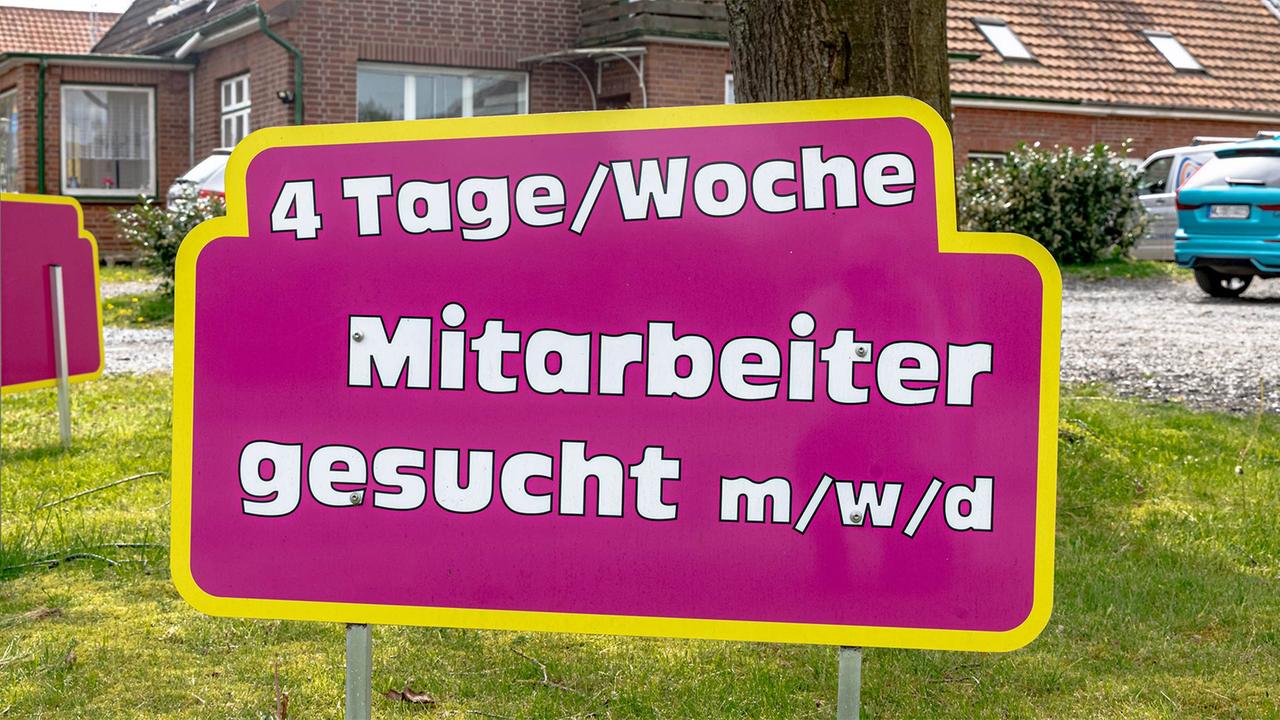Since this year, 45 companies from a wide range of industries across Germany have been testing the four-day week. Between euphoria and overtime: how is it working now? One company reports.
A carpet cleaning company, a construction company, a marketing agency – just some of the companies taking part in the largest nationwide study to date on the four-day week. The “four days” is more of a working title, however. How and in what form the companies reduce their working hours was up to them from the start.
Some use the classic model: Fridays off for everyone. Other companies let their employees continue to work five days and give them a full week off every fifth week. Or they reduce the daily working hours. How has that worked in the past few months?
This is how it works with a Tour operator
At Kootstra Schiffsreisen in Münster, a very colorful duty roster has been hanging on the office wall since February, reminiscent of a patchwork quilt. The company has divided the employees into two groups: half have Mondays off, the other half have Fridays off. The office has been much emptier since then. And they have had to shorten their telephone opening hours in order to be able to work more productively.
“Everyone had their own individual ups and downs,” says managing director Julius Gräler in the fifth month of the project. From the very beginning, he was convinced that the weekly working hours would be reduced and was keen to try it out in his company.
The tour operator organizes boat and bike tours, especially in the Netherlands. Now, just before the summer holidays, they are in the hot phase. Then there was the flooding of the Danube, which affected many of their trips. The four-day week was therefore not only positive. “It also meant that employees were stressed because a lot of work was left undone on their day off,” says Gräler.
Feedback from guests and employees positive
When asked whether it was worth it, the manager's answer was clear: “You can see that people feel a little more rested, that they subjectively have no problems with the shortened working hours in order to get their work done.” The employees did not have to work more overtime, productivity remained the same and the feedback from guests was also positive.
Gräler says that 80 percent of employees also consider the project a success. And even though it means more work for him as the boss in the organization, he wants to continue the four-day week after the end of the project.
Employees want more flexible working hours
Julia Backmann from the University of Münster is evaluating the study data: she and her colleagues regularly hold discussions in the companies. Volunteers also wear fitness watches that measure their pulse and, for example, their sleep quality. Things are not running as smoothly as they are at Kootstra in Münster, says Backmann. She can say that much – even if the data has not yet been officially evaluated.
“We are particularly interested in the employee perspective,” says the researcher. “Many of them see the four-day week positively, but others remain skeptical. If, for example, employees have to work an hour longer every day to get a day off, then some people find this very stressful, depending on the industry.” Her conclusion: Many employees want to make their working hours more flexible, but not necessarily spread over four days.
Chance in the fight against Skilled labor shortage
And on the company side? She observed that the agreed reduced working hours could not always be adhered to by everyone and that the change was very difficult for some companies, reports Backmann. Depending on the industry, size or company culture. However, there was also a big advantage: “When companies advertised this as part of a job advertisement, the number of applications increased significantly. And that was with the same quality of applications.”
A clear opportunity, as the shortage of skilled workers was what prompted many companies to take part in the study. Backmann is cautiously optimistic. A four-day week is not suitable for every company, but it could have advantages for many. The results of the study are to be finally evaluated in the autumn.




